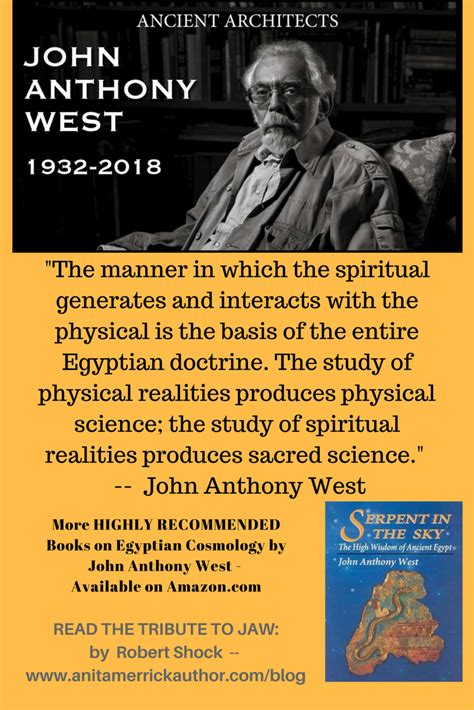A Quote by Jonathan Haidt
Religion and science, for example, are often though to be opponents, but as I have shown, the insights of ancient religions and of modern science are both needed to reach a full understanding of human nature and the conditions of human satisfaction. The ancients may have known little about biology, chemistry, physics, but many were good psychologists.
Related Quotes
When physics, chemistry, biology, medicine, contribute to the detection of concrete human woes and to the development of plans for remedying them and relieving the human estate, they become moral; they become part of the apparatus of moral inquiry or science? When the consciousness of science is fully impregnated with the consciousness of human value, the greatest dualism which now weighs humanity down, the split between the material, the mechanical and the scientific and the moral and ideal will be destroyed.
In all modern history, interference with science in the supposed interest of religion, no matter how conscientious such interference may have been, has resulted in the direst evils both to religion and to science, and invariably; and, on the other hand, all untrammelled scientific investigation, no matter how dangerous to religion some of its stages may have seemed for the time to be, has invariably resulted in the highest good both of religion and of science.
Understanding human nature must be the basis of any real improvement in human life. Science has done wonders in mastering the laws of the physical world, but our own nature is much less understood, as yet, than the nature of stars and electrons. When science learns to understand human nature, it will be able to bring a happiness into our lives which machines and the physical sciences have failed to create.
Technological civilization... rests fundamentally on power-driven machinery which transcends the physical limits of its human directors, multiplying indefinitely the capacity for the production of goods. Science in all its branches - physics, chemistry, biology, and psychology - is the servant and upholder of this system
It is ... a sign of the times-though our brothers of physics and chemistry may smile to hear me say so-that biology is now a science in which theories can be devised: theories which lead to predictions and predictions which sometimes turn out to be correct. These facts confirm me in a belief I hold most passionately-that biology is the heir of all the sciences.
If I were a physics teacher or a science teacher, it'd be on my mind all the time as how the hell we really got this way. It's a perfectly natural human thought and, okay, if you go into the science class you can't think this. Well, alright, as soon as you leave you can start thinking about it again without giving aid and comfort to the lunatic fringe of the Christian religion.
Historically, religion has given people another world to live in, a world more adaptive to the human spirit. As a student of world religions, I see religion as the winnower of the wisdom of the human race. Of course, not everything about these religions is wise. Their social patterns, for example - master-slave, caste, and gender relations - have been adopted from the mores of their time. But in their view of the nature of reality, there is nothing in either modernity or postmodernity that rivals them.
The scientific method," Thomas Henry Huxley once wrote, "is nothing but the normal working of the human mind." That is to say, when the mind is working; that is to say further, when it is engaged in correcting its mistakes. Taking this point of view, we may conclude that science is not physics, biology, or chemistry — is not even a ”subject " — but a moral imperative drawn from a larger narrative whose purpose is to give perspective, balance, and humility to learning.
Gradually, ... the aspect of science as knowledge is being thrust into the background by the aspect of science as the power of manipulating nature. It is because science gives us the power of manipulating nature that it has more social importance than art. Science as the pursuit of truth is the equal, but not the superior, of art. Science as a technique, though it may have little intrinsic value, has a practical importance to which art cannot aspire.
What art should be about,' they will say, 'is revealing exquisite and resonant truths about the human condition.' Well, to be honest - no, it shouldn’t. I mean, it can occasionally, if it wants to; but really, how many penetrating insights to human nature do you need in one lifetime? Two? Three? Once you’ve realised that no one else has a clue what they’re doing, either, and that love can be totally pointless, any further insights into human nature just start getting depressing really.
In my view, The Temple of Man is the most important work of scholarship of this century. R. A. Schwaller de Lubicz finally proves the existence of the legendary 'sacred science' of the Ancients and systematically demonstrates its modus operandi. It was this great science-based upon an intimate and exact knowledge of cosmic principles-that fused art, religion, science, and philosophy into one coherent whole and sustained Ancient Egypt for three thousand years.





































